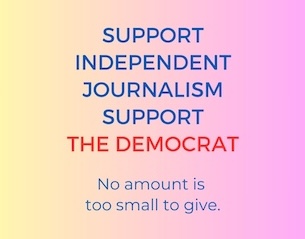- More
- A milestone in the history of the country
A milestone in the history of the country
Exactly thirty years ago, India’s foreign exchange reserves had come down to zero. The country had as much as 14 days of imports. That situation was very worrying. It was time for us to arrange foreign exchange by mortgaging the country’s gold with the Bank of England. P. V. Narasimha Rao’s government came and Dr.

Exactly thirty years ago, India’s foreign exchange reserves had come down to zero. The country had as much as 14 days of imports. That situation was very worrying. It was time for us to arrange foreign exchange by mortgaging the country’s gold with the Bank of England.
P. V. Narasimha Rao’s government came and Dr. Manmohan Singh had been appointed as Finance Minister. He explored the reasons for the depletion of foreign exchange reserves. The skyrocketing oil prices due to the Gulf War, the repatriation of Indians for employment in those countries, either forced them to spend extra foreign currency on imports and stopped the flow of foreign currency through Gulf workers.
So this situation was dragged out. Dr. Singh linked the Indian economy to the world economy. Adopted an open economic policy. As a result, foreign exchange reserves continued to grow, In the last six years, global crude oil prices have remained low. India also used ethanol and other non-conventional energy sources. As a result, imports fell by almost ten per cent.
India’s largest foreign exchange is spent on crude oil purchases, followed by gold imports. Now gold imports have also come down. In the last few months, India’s foreign exchange reserves have been increasing as the gap between imports and exports has narrowed. While other industries were struggling, India’s foreign exchange reserves continued to grow through information technology. Another important reason is that despite the country’s economic woes and the collapse of the capital market, foreign direct investment has increased. While the global economy has collapsed due to the corona outbreak, India continues to have a steady flow of foreign exchange. India’s foreign exchange reserves have crossed 500 billion dollars to 501.70 billion dollars. In the first week of June, foreign exchange reserves rose by 12.4 billion dollars to 501.70 billion. It has about Rs 37.30 lakh crore worth of foreign exchange reserves in Indian rupees.
As the global economy collapses, India continues to receive a steady stream of foreign exchange. India is the third largest country in the world after Japan and China. India has overtaken Russia and South Korea. India could import goods and services for the next 17 months at a rate of 501.70 billion dollars which is currently available to India. Corona has brought businesses to a standstill around the world, yet Indian foreign exchange reserves continue to rise. This is because foreign investors are investing heavily in India through the stock market and foreign direct investment (FDI). Foreign investors have invested 2.75 billion dollars in the Indian stock market.
As a result of this growing investment, the foreign exchange reserves reached 500 billion dollars. Six foreign companies have recently invested Rs 97,886,000 crore in Reliance Jio. Uday Kotak also sold 2.8 per cent stake in Kotak Mahindra Bank. This led to an increase in foreign inflows. Demand increased and the inflow of foreign investment increased. It has had a positive effect. Now imports and foreign capital investment will also begin to grow. Once the economy opens up, demand grows and that has a positive effect on investment. It has benefited us. India’s crossing of the 500 billion dollars foreign exchange reserve mark is a milestone in the country’s economic history. The country’s foreign exchange reserves stood at just 5.8 billion dollars in 1991 before the country’s economic reforms began.
India had to repay the loan by mortgaging gold in the Bank of England. After 29 years, it has increased by 8400 percent. Forex reserves are important for the country’s economy. The major banks in every economy have foreign exchange reserves. Foreign investment builds confidence in the economy and increases global credibility. The exchange rate of the currency favors the economy of the country. The liquidity of money can be kept intact in the event of an economic catastrophe by reducing the chances of a financial crisis in the country. Foreign investors’ confidence in the country’s economy grows. Foreign loans can be repaid on time and thus increase the country’s financial credibility and credibility globally.











